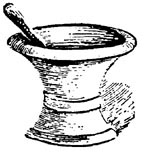
An Anglo-Catholic Tale
MAY WE LEARN, SOONER RATHER THAN LATER
It is amazing how a book on an unrelated topic can set off a series of associations in the mind. Recently, I read Joseph Pearce’s masterful book, Literary Converts. A thrilling read, the narrative deftly wove together the stories of innumerable members of England’s Catholic Revival. Apart from enjoying the tales of famous Catholic writers (and some not so famous), it reminded me of the part Anglo-Catholicism played in my own theological development.
Liturgically, spiritually, and intellectually, California’s West San Fernando Valley was a pretty bleak place for a Catholic teenager in the mid-1970s (not that it has improved since!). Having come up to the Valley, and Bishop Alemany High School, from Hollywood (a city which I had always compared disparagingly with New York, whence we had come in my early childhood), I found our new home unbearably dull. Of course, at 16 most young people find their surroundings so, but 1976 was a particularly dull time, and the Valley was a particularly dull locale.
Good Old Plastic Jesus and Christ Among Us were the great religious “classics” of the time, and “Put Your Hand in the Hand of the Man” was a favorite processional hymn. The nuns at Alemany (a non-habited collection of ladies from various orders) tried to convince us that the hand was the best place to receive Communion (even though it was then technically illegal) and demonstrated by example. The excitement of the Catholic Revolution of the 1960s had worn off, but its shock troops soldiered wearily on. The result, then as now, was a level of Catholic parish and school life as dull as it was trivial.
Fortunately for my faith, my father was an extremely intelligent man, with a large library and wide-ranging interests, historical and literary. My brother André and I learned more of our religion from him than we did from parish and school. A chance meeting with James Francis Cardinal McIntyre, former Archbishop of Los Angeles, led to his becoming my confessor. Our weekly meetings were oases for my soul. But the influence of these two individuals could not make up for the lack of a truly Catholic community life with intellectual stimulation.
Concerned that I was not being exposed to any authentic liturgical experience, the Cardinal made a novel recommendation. He suggested that I attend Saturday Vigil Mass for Communion, and then make a trip down to Hollywood to see High Mass at St. Mary of the Angels Episcopal Church. I did so, and made a wonderful discovery: the historic liturgy and Church music produced by the Catholic Church (something the priests and religious of my youth had spent their time discarding).
You May Also Enjoy
Too many seminarians these days are too outspokenly traditional.
The November 11, 1992, vote of the General Synod of the Church of England to…
About six years ago, the Vicar took to the pulpit on a Sunday morning and dropped a bomb. He told us that the time had come for him to come out of the closet.

